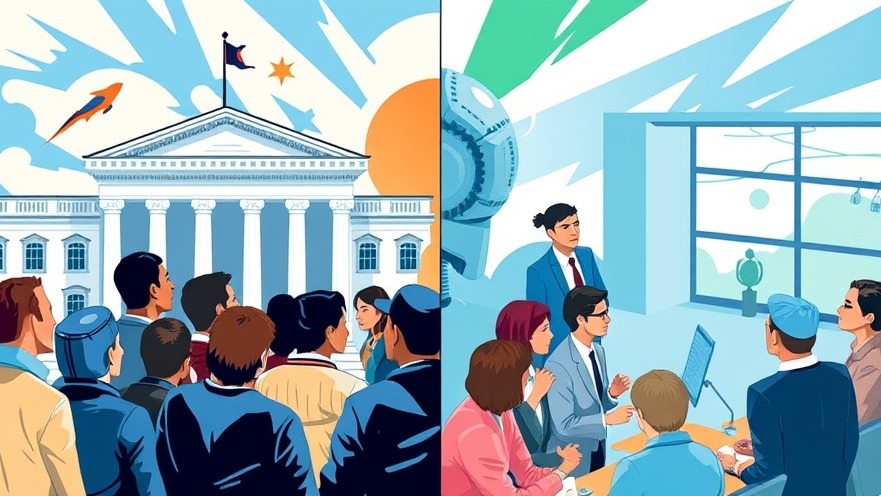
Understanding the Stakes: AI Regulation and State vs. Federal Power
As discussions around AI regulation evolve, the question of whether states should have a major role or whether governance should be centralized at the federal level has become increasingly contentious. The current landscape in the United States shows a rapid proliferation of state-level legislation—over 70 laws passed and more than a thousand proposed—each with the potential to disrupt the cohesive development of AI technologies and services across the country.
In 'David Friedberg On The Looming War Over AI Regulation In Washington', the discussion focuses on the pivotal debate surrounding AI regulation, prompting a deeper exploration of its implications for franchising and innovation.
The Risks of a Fragmented Regulatory Environment
David Friedberg, a prominent figure in the technology sector, warns that a patchwork of state regulations will hinder companies like Google and OpenAI, which must cater to diverse compliance requirements. By imposing state-specific regulations, the U.S. risks not only stifling innovation but also negatively impacting the job market. Tech startups and smaller companies may find themselves at a disadvantage against larger incumbents, who possess the resources to navigate complex regulatory hurdles.
Economic Implications of AI Regulation
The arguments raised by Friedberg highlight the critical connection between technology regulation and economic growth. AI is positioned as a key driver of the U.S. economy, influencing productivity and job creation. Efficient regulations at the federal level would serve to unify standards, potentially increasing the feasibility of new technologies and fostering a competitive environment essential for growth.
Comparative Perspectives: AI and Other Regulatory Debates
The discussion around AI parallels debates in other areas like cannabis and online gambling, where state-by-state regulations have led to confusion and inconsistencies. Such precedents invite comparisons with the burgeoning AI landscape, raising important questions regarding individual sovereignty and collective safety. While advocates for state autonomy argue for localized regulations targeting specific state issues, detractors see this as inadequate for managing a technology that influences numerous sectors on both national and international scales.
Innovation Versus Regulation: The Friction Point
A critical examination of the AI regulation debate is necessary for franchise brand founders and local franchise owners who must adapt their strategies in response to forthcoming laws. With the speed at which technology evolves, relying on a multilayered regulatory framework can slow down innovation, making it crucial for industry leaders to stay informed and actively engage in the legislative process.
Conclusion: The Time for Federal Leadership is Now
As our economy becomes increasingly intertwined with AI technologies, the call for a cohesive federal framework becomes louder. Encouraging a singular regulatory approach at the national level could not only stimulate growth within the AI sector but provide clarity and ease for businesses navigating this complex environment. As franchise leaders, it is crucial to foster discussions and advocate for regulations that support innovation while ensuring safety and consumer protection.
 Add Row
Add Row  Add
Add 




Write A Comment